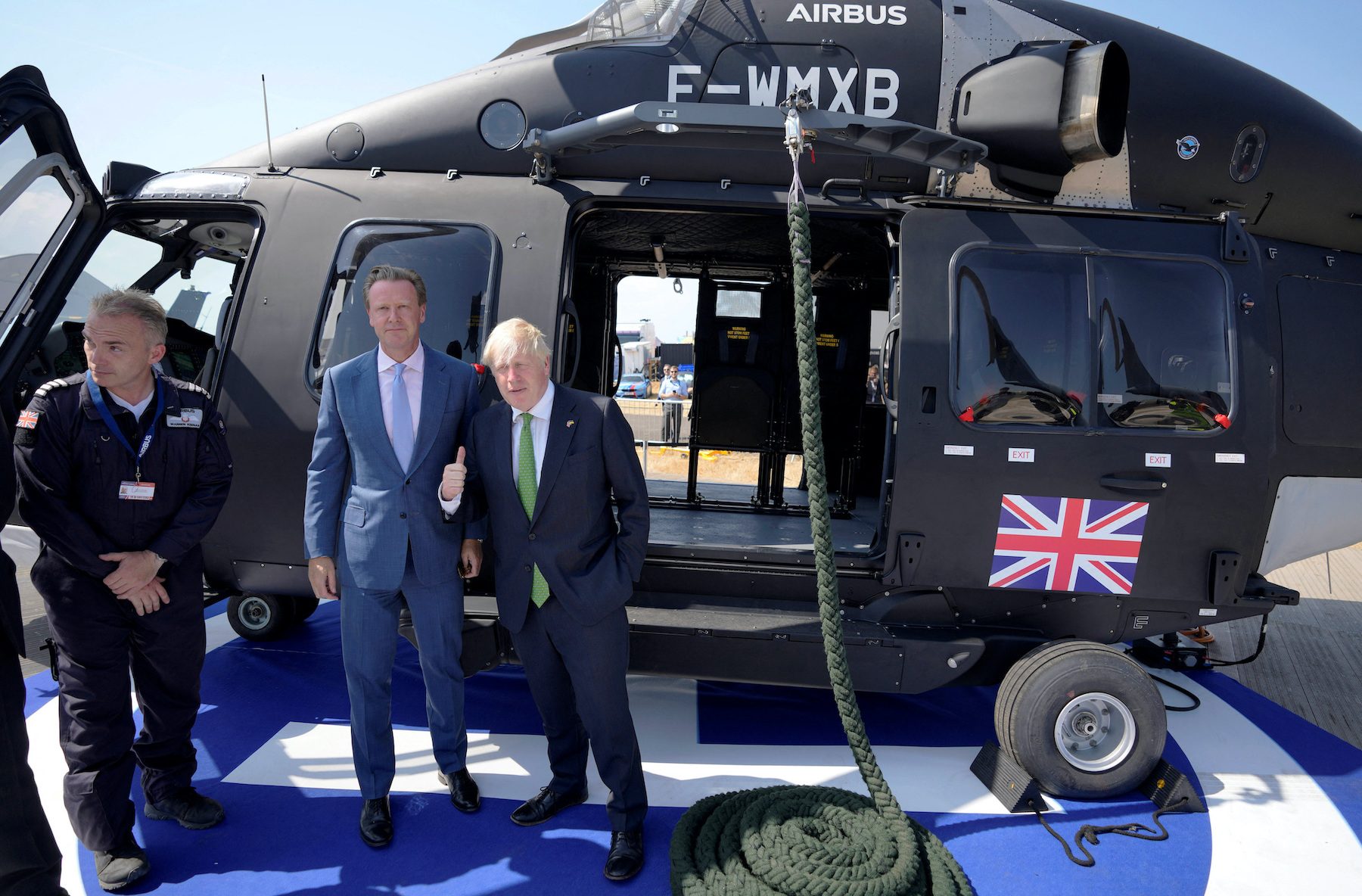SUMMARY
This is AI generated summarization, which may have errors. For context, always refer to the full article.

FARNBOROUGH, United Kingdom – UK-Japanese collaboration on fighter jets and a multibillion-dollar Boeing passenger plane order gave a lift to the aviation industry on Monday, July 18, as the Farnborough Airshow returned in a heatwave tipped to break UK records.
A national emergency has been declared in Britain for Monday and Tuesday, July 19, with temperatures set to rise above 40°C (104°F) for the first time.
Despite warnings to limit travel, delegates battled crowded trains and shuttle buses to reach the show in southern England. Problems were exacerbated by climate protesters holding a mock funeral for the Earth outside the show.
The industry has been reeling from its own travel disruptions and the head of Emirates airline, which has clashed with London’s Heathrow over enforced capacity cuts, said a badly disrupted air travel industry would return to equilibrium in 2023 and must “tough it out” until then.
The air show, which alternates with Paris, is the first at Farnborough since 2019, and rising defense spending is in focus amid the war in Ukraine.
Britain announced it was collaborating with Japan and existing partner Italy on its next-generation fighter jet program, potentially leading to decisions on deeper partnerships by the end of the year.
Three sources told Reuters last week that Britain and Japan were close to agreement to merge their next-generation Tempest and F-X fighter jet programs to help save costs.
“I am a passionate believer in the potential of our burgeoning partnership, not just with Italy, but with Japan,” British Prime Minister Boris Johnson said in opening remarks at the show.
On the civilian side, Boeing, under pressure to make up ground lost to rival Airbus, struck an upbeat tone on aircraft demand despite a faltering global economy.
“I think we’ll see the glory of the old days – and then some,” chief executive officer Dave Calhoun told CNBC, adding he was keeping a close eye on the economy. “For right now I am enjoying the robust demand that we see.”
Boeing received a boost for its 737 MAX 10 jet, which has hit regulatory snags, with Delta Air Lines announcing an order for 100 of the aircraft worth $13.5 billion at list prices, confirming a Reuters report.
India’s Jet Airways is near a deal to buy 50 A220 jets from Airbus, two people close to the matter said.
Frustration
Demand for jets peaked in 2016 but remained buoyant until the pandemic crippled air transport. Now, travel is rebounding, passengers face long lines, and some jets are back in demand.
But the big-ticket orders that dominated past events are rarer as airlines repair balance sheets weakened by COVID-19 travel restrictions.
Aerospace firms came under pressure from customers at the start of the show to stabilize fractured supply chains and feed resurgent jet demand, even as airlines and airports are struggling to smooth their own operations after the pandemic.
Airbus CEO Guillaume Faury told Flightglobal in an interview published on Monday that engine delays holding back plane deliveries would peak at mid-year.
But the head of the body representing global airlines, International Air Transport Association director general Willie Walsh, said manufacturers had wasted chances to shore up assembly lines.
“Airlines are frustrated by the delays around delivery of aircraft; they’re frustrated around issues like access to spare parts,” Walsh told Reuters.
“I think [manufacturers] should have taken better advantage of the lull in demand over the past two years to have been better prepared for this recovery.”
Industries worldwide are facing gaps in supply chains and labor shortages. Even the Farnborough Airshow itself has had trouble recruiting enough hospitality staff, insiders said.
Aviation is also under pressure to build greener planes and stop adding to what Johnson called the “carbon tea cozy” heating the planet. “We know that we must fix it. We know that time is running out,” he said. – Rappler.com
Add a comment
How does this make you feel?
There are no comments yet. Add your comment to start the conversation.